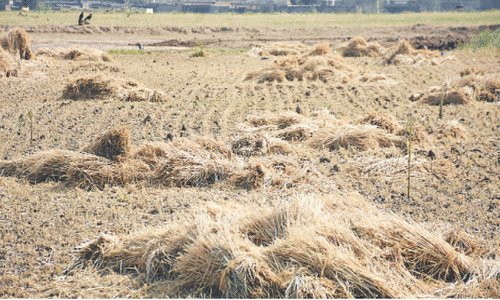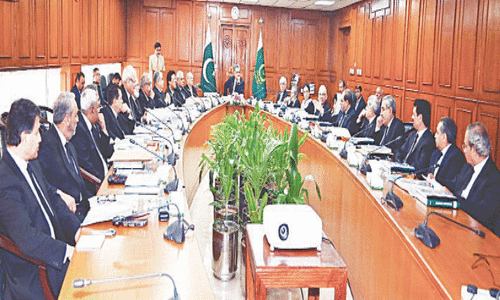A DECADE of insecurity in Balochistan has had a grim effect on the troubled province’s demographics.
According to the Human Rights Commission of Pakistan, hundreds of thousands of citizens belonging to religious minority groups as well as settlers from other parts of Pakistan have left Balochistan, thanks to an atmosphere of hostility and violence, which has been shaped by sectarian death squads, separatist militants, and, sadly enough, the state.
Part of an HRCP delegation that recently visited Balochistan, the group’s chairperson Zohra Yusuf told the media on Sunday that Shias, Hindus and Zikris have been leaving the province in droves over the past nine years, relocating elsewhere in the country and abroad.
The human rights group gathered this information by conducting interviews and recording testimonials. The HRCP chief also raised the issue of violence faced by journalists in the volatile region; over the last decade, around 40 media persons have been killed, though none of the perpetrators have been brought to justice.
There are numerous actors responsible for violence in Balochistan. Amongst the most lethal are sectarian groups that have unleashed their weapons on Shias — mostly Hazaras — while the small Zikri community has also found itself in their cross hairs.
The most troubling aspect is that the religious extremists are perceived as being tolerated — if not supported — by the establishment to checkmate Baloch separatists.
Meanwhile, the latter are responsible for violence of their own. Along with targeting symbols of the state, they have also turned their guns on settlers in the province. And apart from violence motivated by sectarian and ethno-nationalist considerations, the state, too, has ferociously come down on the separatists and Baloch political activists. While the HRCP said violence had decreased to some extent under the current provincial government’s watch, it is a troubling reality that the dumping of mutilated bodies continues.
All the while, the media — which can independently help determine the facts in Balochistan — are being cowed through murder and intimidation. As local journalists point out, they face pressure from both the state and the separatists.
An exodus of religious minorities as well as settlers spells disaster for diversity in Balochistan. Due to this flight, the people of Balochistan will suffer the most.
After all, among those who have left there are educated professionals, tradesmen, educators etc who are crucial to the functioning of a vibrant society.
Perhaps there is still time to stem such negative trends if a genuine effort is made to bring all estranged parties to the table and solve Balochistan’s problems through dialogue. But for that to happen the elected government needs to be given full authority to operate, as barely below the surface it is still the security establishment that calls the shots in Balochistan.
It is the establishment which needs to reflect on why its policies have failed to bring peace to the province.
Published in Dawn, October 14th, 2014
















































